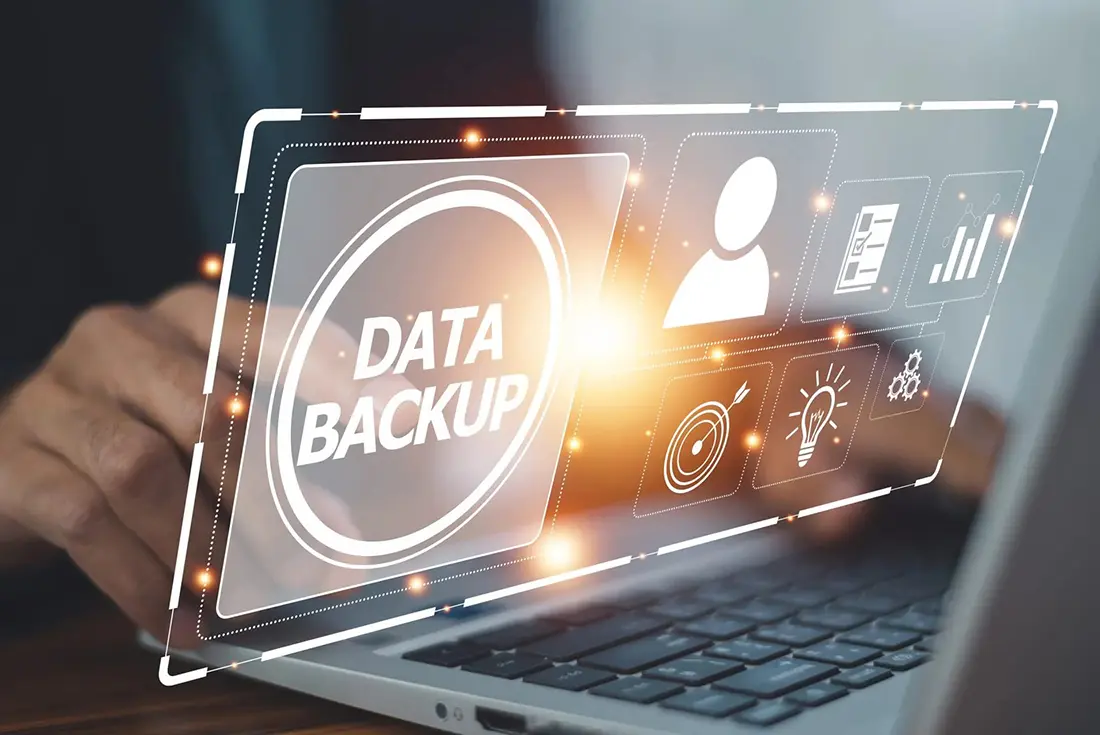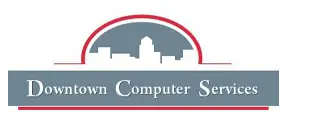
28 Jun Data Backup & Recovery Explained: On-Premises vs. Cloud
Data is the lifeblood of any business. Customer information, financial records, operational data – it all holds immense value. But what happens when disaster strikes? A hardware failure, a cyberattack, or even a natural disaster can lead to catastrophic data loss, disrupting operations and potentially putting your business at risk. This is where data backup and Fort Lauderdale data recovery come into play.
Data backup involves creating copies of your critical data and storing them in a separate location. Data recovery is the process of retrieving and restoring this backed-up data in the event of loss or corruption. These two processes are the cornerstones of any robust disaster recovery plan, ensuring business continuity and minimizing downtime.
There are two primary methods of data backup: on-premises and cloud backup. Each method has its own set of advantages and disadvantages, and choosing the right one depends on your business’s specific needs and resources. In this guide, we’ll delve into the intricacies of each method, helping you make an informed decision to safeguard your valuable data and ensure your business can weather any storm.
On-Premises Backup: In-House Control
On-premises backup involves storing your backup data on physical hardware located within your company’s premises. This can include external hard drives, network-attached storage (NAS) devices, or tape drives. With on-premises backup, you have complete control over your data’s physical location and security. You can implement your own security measures, such as encryption and access controls, to protect your data from unauthorized access.
For smaller datasets, on-premises backup can offer faster recovery times compared to cloud backup, as the data is readily available on-site. Additionally, once the initial investment in hardware is made, there are no ongoing subscription fees for on-premises backup.
On-premises backup has its drawbacks. It requires significant upfront investment in hardware and software, as well as ongoing maintenance and IT personnel to manage the backup process. Moreover, storing backups on-site leaves them vulnerable to physical disasters like fire, floods, or theft, potentially leading to complete data loss. Scaling on-premises backup to accommodate growing data volumes can also be challenging and expensive.
Cloud Backup: Offsite Security and Scalability
Cloud backup involves storing your backup data on remote servers that are accessed over the internet. These servers are maintained by third-party providers who specialize in data storage and security. With cloud backup, you benefit from a pay-as-you-go model, which can be more cost-effective than investing in on-premises hardware.
One of the most significant advantages of cloud backup is its scalability. You can easily increase or decrease your storage capacity as your business grows, without worrying about purchasing and maintaining additional hardware. Cloud backup also offers offsite protection for your data. Your backups are stored in secure data centers that are designed to withstand natural disasters and are protected by advanced security measures. Additionally, cloud backups are accessible from anywhere with an internet connection, allowing for easy recovery in case of a disaster at your primary location.
For businesses seeking a hassle-free and reliable cloud services in Fort Lauderdale, Downtown Computer Services offers a range of options tailored to your needs. With over 25 years of experience serving corporate Florida, we provide secure offsite data backup, data sync services, and cloud solutions like Hosted Exchange and Office 365. Our expertise allows you to leverage the power of the cloud without the burden of managing complex infrastructure, ensuring your data is safe, accessible, and always up-to-date. And we’re also Fort Lauderdale data recovery specialists. To learn more, call us at (954) 524 9002.
However, cloud backup relies on a stable internet connection for both backup and recovery. If your internet connection is slow or unreliable, backups and restores may take longer. There are also concerns about data security and privacy when entrusting your data to a third-party provider. It’s crucial to choose a reputable provider with strong security measures and encryption protocols.
Hybrid Backup: The Best of Both Worlds
For many businesses, a hybrid backup approach offers the ideal balance between control, security, and scalability. Hybrid backup combines the advantages of both on-premises and cloud backup, creating a more comprehensive and resilient data protection strategy.
With a hybrid approach, you can store your most critical data locally for fast recovery in case of minor incidents or outages. This ensures minimal downtime and quick access to essential files. Simultaneously, you can back up less frequently accessed or archival data to the cloud for long-term storage and disaster recovery. This offsite storage provides an extra layer of protection against physical disasters that could damage your on-premises backups.
Hybrid backup offers flexibility in choosing which data to store where. You can prioritize sensitive data for local storage while leveraging the cloud’s scalability for less critical data. This approach can also be more cost-effective than relying solely on cloud storage, as you only pay for the cloud storage you actually use.
Choosing the Right Backup Solution: A Tailored Approach
The best backup solution for your business depends on various factors, including your company size, data volume, budget, and specific needs. If you are located in or near Fort Lauderdale and looking for a tailored solution, seeking out “cloud services in Fort Lauderdale” could provide you with local expertise and support. Smaller businesses with limited IT resources and smaller datasets might find on-premises backup a more manageable and cost-effective option. On the other hand, larger enterprises with massive amounts of data and stringent compliance requirements might benefit from the scalability and security of cloud backup.
Consider your Recovery Time Objectives (RTOs) and Recovery Point Objectives (RPOs). RTO is the maximum acceptable amount of time it takes to restore your data after a loss, while RPO is the maximum acceptable amount of data loss measured in time. If your business requires near-instant recovery and minimal data loss, a combination of on-premises and cloud backup might be the best approach.
When choosing a backup provider, thoroughly research their security measures, encryption protocols, uptime guarantees, and customer support. Ensure they comply with relevant industry regulations and offer service level agreements (SLAs) that meet your business’s needs. Inquire about pricing models and scalability options to ensure the solution can grow with your business.
Best Practices for Data Backup and Recovery
Regardless of whether you choose on-premises, cloud, or hybrid backup, adhering to best practices is crucial for ensuring the effectiveness and reliability of your data protection strategy.
Regular Backup Schedule
Establish a regular backup schedule that aligns with your business’s data generation and change frequency. Daily or even hourly backups might be necessary for critical data, while weekly or monthly backups might suffice for less frequently accessed data.
Test Your Backups
Regularly test your backups to verify that they are complete and can be successfully restored. This will help you identify any potential issues before disaster strikes. If you encounter any difficulties during the restoration process, don’t hesitate to seek help from professionals specializing in “data recovery near me” for prompt and reliable assistance
Encryption
Encrypt your sensitive data before backing it up. This adds an extra layer of security and protects your data from unauthorized access in case your backups are compromised.
Keep Software Updated
Regularly update your backup software and hardware to ensure optimal performance and compatibility with the latest technologies.
Offsite Storage
Always maintain an offsite copy of your backups for disaster recovery. This could be a physical copy stored in a secure location or a cloud backup.
Recovery Plan
Develop a clear and detailed recovery plan that outlines the steps to take in case of data loss. This plan should include procedures for restoring data from backups, communication protocols, and roles and responsibilities for your team.
Review and Update
Regularly review and update your backup and recovery strategies to ensure they remain aligned with your business’s evolving needs and the latest technology advancements.
If you are facing data loss, don’t hesitate to seek out “data recovery near me” to find local experts who can help you recover your valuable information.
Conclusion
Now you know that choosing between on-premises and cloud backup involves careful consideration of your business’s specific needs and resources. Whether you opt for the in-house control of on-premises backup, the scalability and accessibility of cloud backup, or the combined benefits of a hybrid approach, the key is to have a comprehensive strategy in place to protect your valuable data.
Remember, the best backup solution is the one that aligns with your business’s unique requirements and budget. By following best practices and proactively safeguarding your data, you can ensure business continuity, minimize downtime in case of a disaster, and focus on what matters most – growing your business.
If you’re unsure of where to start, Downtown Computer Services can help. We’ll work with you to assess your specific needs and create a tailored backup and recovery plan that fits your budget and ensures the safety and accessibility of your critical data. Our expertise in both on-premises and cloud solutions allows us to recommend the best approach for your business, giving you peace of mind and the confidence to face any unforeseen events. Contact us today at (954) 524 9002 to learn more about how we can help you safeguard your data and your business’s future.
Key Takeaways
- Both on-premises and cloud backup solutions offer advantages and disadvantages, making a hybrid approach a viable option for many businesses to combine the strengths of both.
- When choosing a data backup solution, consider your business’s specific needs, including budget, data volume, and recovery time objectives (RTOs), as well as the provider’s security measures, uptime guarantees, and customer support.
- Implementing best practices like regular backups, encryption, and offsite storage is essential for effective data protection and ensuring business continuity in the face of unexpected data loss or disasters.
Check out other relevant news
- How Easy-to-Use Hacking Tools Are Fueling Cybercrime
- Cryptocurrency Security for Small Businesses: Protecting Your Wallet
- The Infostealer Epidemic: Protecting Your Business from the Latest Wave of Cyberattacks
- The Identity Crisis: How Compromised Credentials Can Cripple Your Business
- Beyond the Brick and Mortar: Building Your Online Storefront with Digital Marketing
